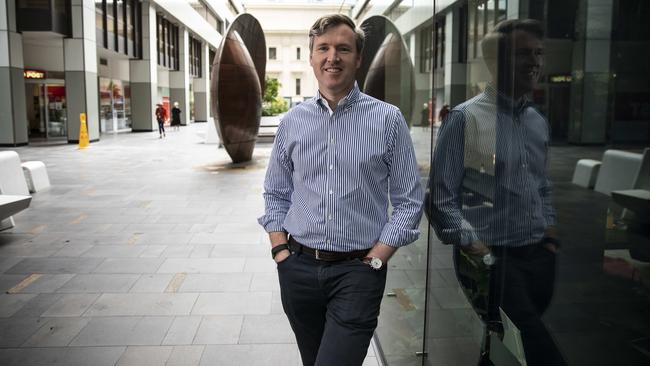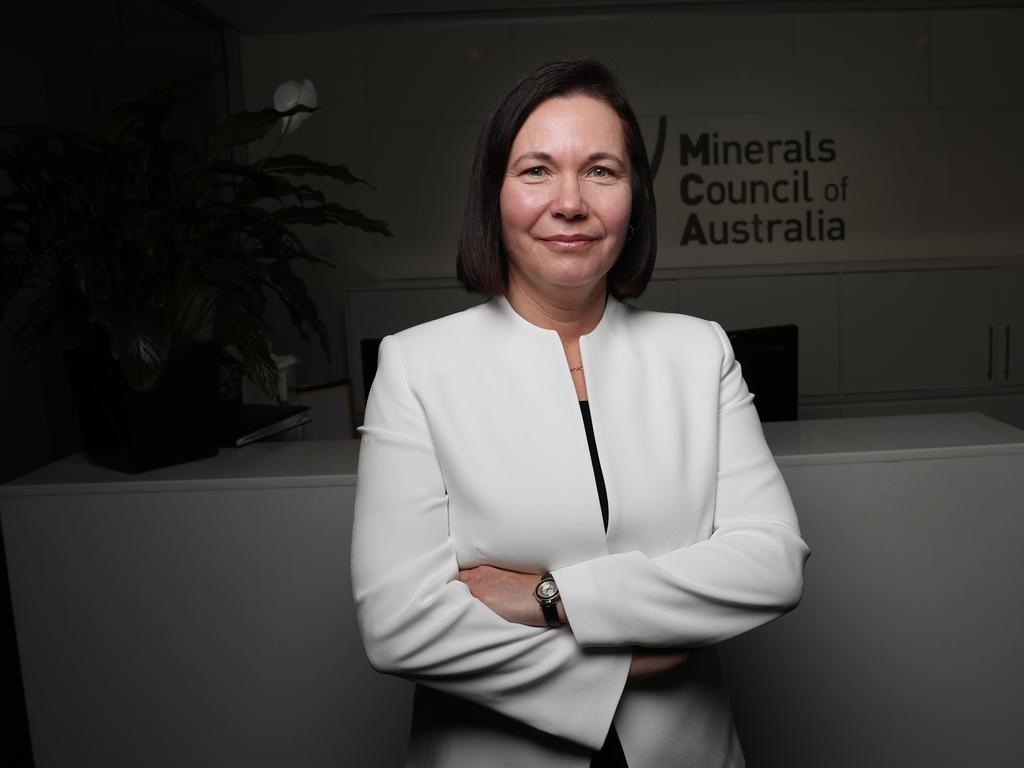Cheaper gas ‘unrealistic’: Shell chairman Tony Nunan
Energy giant Shell has pushed back at the prospect of cheaper gas on the east coast as an unrealistic short-term target.

Energy giant Shell has pushed back at the prospect of cheaper gas on Australia’s east coast as an unrealistic short-term target and says its future investments will focus on lower carbon emissions amid shareholder pressure to meet ambitious climate goals.
A COVID-19 commission taskforce has recommended the government guarantee gas volumes, open new fields and build pipelines to halve the price of the fossil fuel to a target of $4 a gigajoule.
But Shell, one of the biggest gas producers and foreign investors in Australia, said the logic was faulty and failed to recognise the higher cost of extracting supplies compared with conventional fields like the Bass Strait.
“When prices are being touted that are lower than the cost of getting it out of the ground, they are just not based in the reality of today,” Shell Australia chairman Tony Nunan told The Australian.
“The $4 target, which comes up from time to time, is a price point that is lower than the lifecycle cost of being able to get that gas out of the ground.
“The reality is if a gas buyer is closer to the point of supply, the price should be cheaper. But the further away a buyer is, it’s more likely to be expensive. That’s what you see with supply into some of the southern states.”
National COVID-19 Co-ordination Commission chairman Nev Power wants to challenge producers’ assumptions over the price of gas on the east coast and use cheaper supplies of the fuel to kickstart a manufacturing-led recovery as the nation looks to boost the economy.
Shell supports the ambition, but said the gas market on the east coast had fundamentally changed from a decade ago.
“We’ve gone from lower-cost conventional sources of gas that was a byproduct of oil production to a place now where predominantly gas is produced in Queensland from coal-seam gas without liquids and is just higher-cost,” Mr Nunan said. “So what’s happening is the cost of supply has gone up. And as a result, the price of gas has gone up. That is the reality of where we are.”
Shell is one of the dominant players in Australia’s booming energy sector, operating the QCLNG export plant in Queensland, the Prelude floating LNG project off northern Australia along with stakes in Western Australia’s North West Shelf, Gorgon, Browse and Sunrise LNG ventures and gas business Arrow.
Former Woodside Petroleum CEO Don Voelte told The Australian Shell may follow Chevron in selling out its one-sixth stake in the North West Shelf, Australia’s largest LNG plant, while the high carbon emissions in Woodside’s long-delayed Browse gas project have also been seen as a stumbling block for an energy major such as Shell looking to reach net zero emissions by 2050.
Mr Nunan described the North West Shelf, which started exporting LNG in 1989, as a “nation-building project”, while noting future Australian investments would mirror Shell’s global shift to energy sources with a lower carbon footprint.
Shell is increasingly focused on boosting its power credentials and said it has a big part to play in the move to a cleaner energy system backed by gas as a firming source of generation.
“Our view is the energy system will go from power providing around 20-30 per cent of the global energy system to power being 50 per cent of the global energy system,” Mr Nunan said. “And the reason is it’s an easier form of energy to decarbonise. So as a company we are investing in projects that deliver on that strategic intent,” Mr Nunan added.
“We recognise that demand for energy globally is changing and that demand is for lower-carbon sources of energy, and we want to be a part of that.”
The energy major bought Trevor St Baker’s ERM Power for $620m in August as part of a plan to grab market share from the big three operators AGL Energy, Origin Energy and EnergyAustralia. It has also taken a stake in Australian renewable power developer Esco Pacific and acquired German household battery maker Sonnen, which holds a position in Australia.
Still, Shell maintains that gas will remain a focus even amid one of the worst oil crashes earlier this year for a generation.
Mr Nunan, who took over the top Australian job for Shell from Zoe Yujnovich, said it had been a whirlwind first nine months in charge since he started the role in October. “What’s happened in the first few months of the year I’d be surprised if anyone expected it,” he said. “For me, we have colleagues obviously in China and we were able to get first-hand accounts of what was happening in China in January and February. So we had a view of the virus — what we weren’t able to anticipate was how quickly and how far it was going to spread globally.”
Shell and PetroChina’s Arrow Energy opted to double down on their Australian bet by approving the first stage of their $10bn Surat Basin project in April in a rare investment boost amid one of the oil sector’s worst downturns.
Mr Nunan said it was an important signal for the sector after a testing start to the year.
“It’s important we recognise the world has changed,” he said. “If we go back six months none of us were expecting the impact the pandemic has had on the global economy. But likewise we’ve also got to have a view to the future and the long term and which investments stack up. Arrow was a challenging decision but we got to the right place and were willing to continue to invest.”
After spending $60bn on energy investments in Australia, Shell said it wanted to build its position here but needed to see the right regulatory settings to sanction more spending.



To join the conversation, please log in. Don't have an account? Register
Join the conversation, you are commenting as Logout